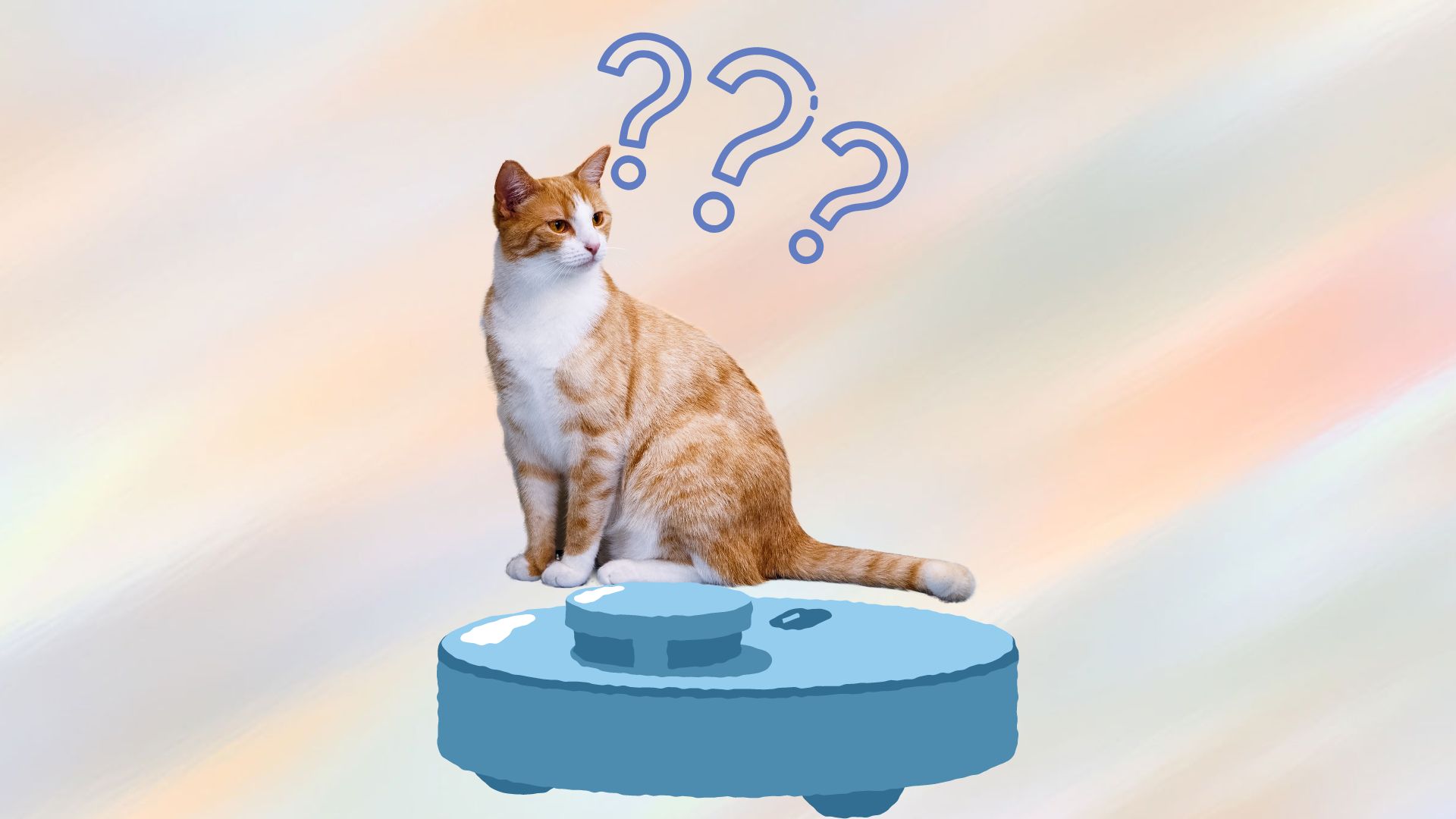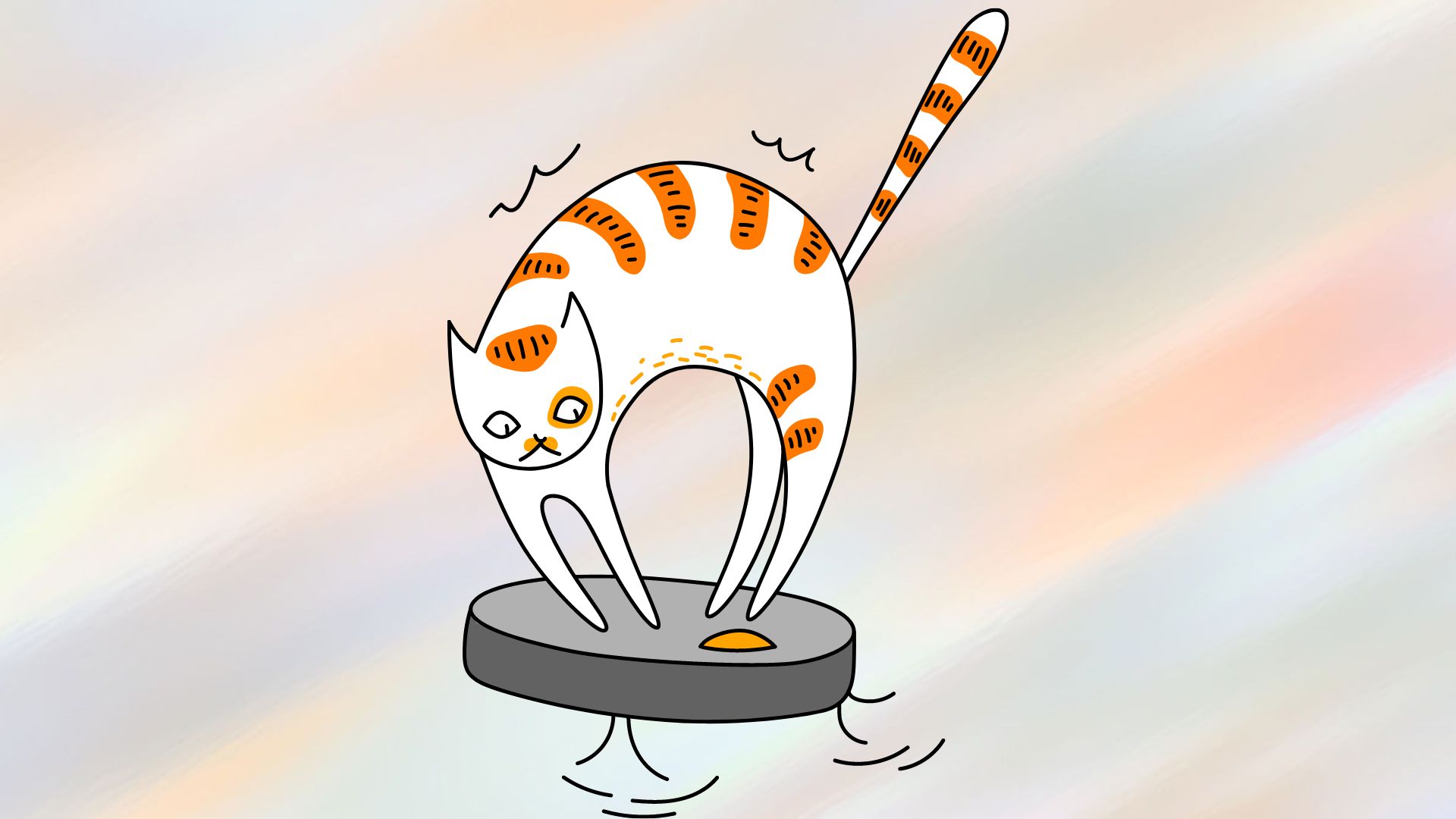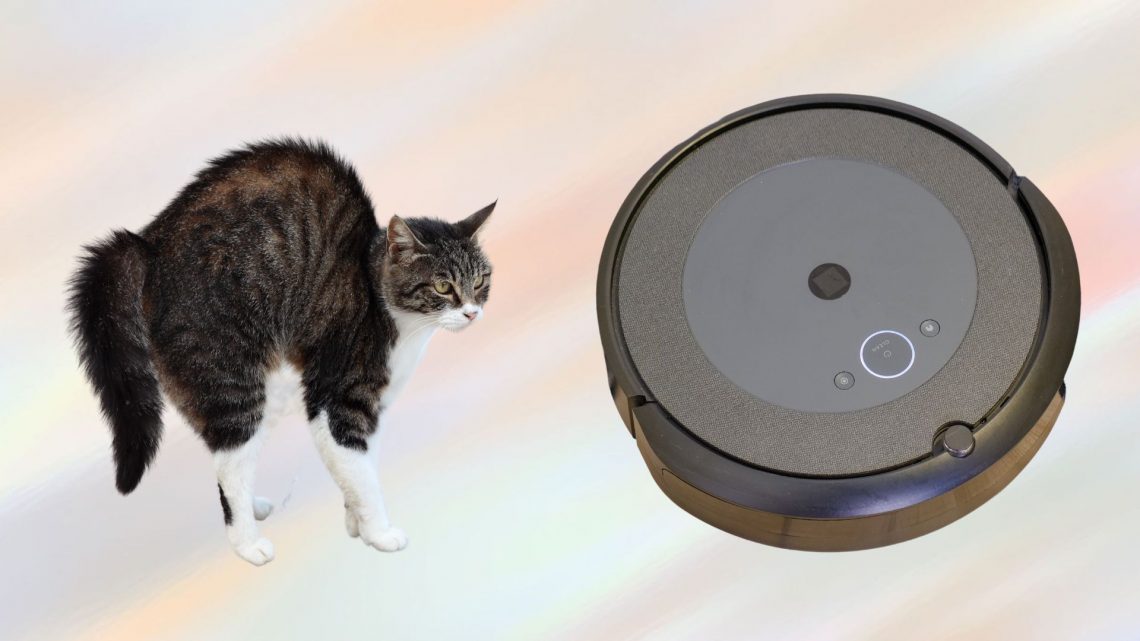Some cats embrace Roombas, our robot vacuum buddies, while others cower at the sight. Traditional, manual, or robotic vacuums all have their share of feline critics.
But why do cats often react with fear to these devices? And how can you maintain a clean home without sending your furry friends into a frenzy? Let’s explore the reasons behind cat-Roomba interactions and find ways to keep both your house and your cats happy.
Understanding Your Cat’s Fear of the Robot Vacuum

Cats, like people, have their own unique personalities, and they often perceive intruders in their domain differently. Believe it or not, some cats are not afraid of Roomba vacuums and even find them intriguing or entertaining. It varies from cat to cat. However, several aspects of the Roomba can trigger fear or anxiety in many cats.
It’s not hard to see why vacuums can be scary for cats. They emit loud, unexpected noises and are relatively large with numerous moving parts, such as the intimidating suction tube and constantly spinning brush rolls.
The Roomba’s noise can be particularly unnerving for cats, especially if they’re sensitive to loud sounds. The sound of the Roomba’s motor can startle your cat, causing them to become anxious or fearful.
Additionally, as the Roomba operates, it produces subtle vibrations in the room. These vibrations can be unsettling for your cat, prompting them to flee. If your cat is afraid of the Roomba’s vibrations, it’s unlikely they’ll use the vacuum as a convenient mode of transportation around the house.
The initial encounter with the vacuum is often a cat’s first experience with this noisy, unfamiliar machine. You might casually start the vacuum without realizing the effect it has on your feline friend, leading them to leap around in fear and seek hiding spots. This initial fright can leave a lasting impression and contribute to a cat’s lifelong anxiety around vacuums.
Addressing Concerns About Cats and Roombas

While pet owners may have concerns about their Roomba potentially frightening their feline companions, those with feisty cats might worry about their beloved pets damaging the expensive vacuum.
Let’s clear something up right away: a cat is unlikely to destroy your Roomba or any other robot vacuum. It might scratch it or cause some minor plastic damage, but completely ruining or shattering the vacuum is highly improbable.
The most vulnerable parts of a robot vacuum are its sensors and cameras. If your robot vacuum relies on cameras for navigation, it might be more susceptible to damage. In such cases, consider opting for a Roomba that utilizes lidar or laser technology for navigation instead.
The good news is that Roombas are designed to be robust and durable. They come equipped with sensors and automatic shutdown mechanisms to ensure their safety. These vacuums are constructed with thick, sturdy materials of high quality.
In the event of an assault, the Roomba will activate its auto-shutdown feature, protecting both your cat and your valuable vacuum cleaner. So, rest assured that your Roomba is well-prepared to withstand curious or mischievous feline encounters.
Helping Your Roomba-Averse Cat Feel at Ease
Cats are creatures of habit, and they can become increasingly anxious if they associate the vacuum with frightful experiences. It’s essential not to subject your cat to constant surprise vacuuming sessions to prevent exacerbating their fear. However, eliminating vacuuming altogether isn’t always feasible.
Here are some strategies to help your cat cope with their fear of the vacuum and reduce their stress.
Help Your Cat Get Acclimated to the Roomba
Give your cat time to adjust to the Roomba’s presence. Start with a low setting and let it roam while your cat observes from a safe distance. Gradually, as they become more curious than fearful, allow the Roomba to approach and let your cat sniff it. Offering a treat when the Roomba is nearby can help create positive associations.
With patience and consistency, cats and Roombas can eventually grow to have have a decent relationship.
Keep Your Cat Safe
If your cat remains deeply frightened of vacuums despite your efforts, your best option is to protect them.
While you vacuum other rooms, place your cat in a separate room and provide engaging toys to keep them occupied. Play some music or turn on the TV to mask the vacuum’s noise, helping your cat stay relaxed and distracted during the cleaning process.
Final Words About Cats and Roombas
It’s clear that cats have a general aversion to loud noises, which includes the racket created by traditional vacuum cleaners. While it’s true that some cats may remain skeptical of or even uninterested in your Roomba, it’s heartening to note that robot vacuums, like the Roomba, tend to operate more quietly than their conventional counterparts. This reduced noise level often makes robot vacuums a more acceptable choice for most cats when it comes to maintaining a clean home environment.
If your cat is one of those who still harbors some fear or uncertainty about your Roomba, there are various strategies and tips to help ease their apprehension and ensure a harmonious coexistence with your trusty robotic helper. Remember, patience, positive associations, and gradual introductions can go a long way in helping your feline friend embrace the Roomba as a friendly addition to the household. By knowing and respecting your cat’s unique personality and preferences, you can create a home where both your cat and your Roomba can peacefully coexist.
RELATED: Perhaps your cat is looking for a bit of a distraction from the Roomba. Check out our list of Best Electronic & Motion Activated Cat Toys in 2023 here.






Leave a Comment